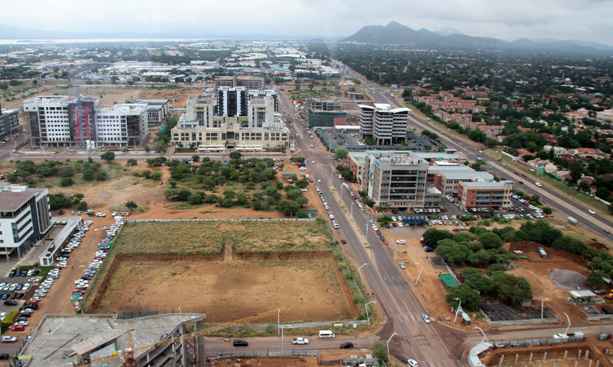Botswana’s economy is expected to grow at a slower pace this year compared to last year, the deputy secretary in the ministry of finance said on Tuesday, with the services sector set to drive growth in the medium term.
Gross domestic product growth in the diamond-producing southern African nation is projected to slow down to 4.3% in 2019, from 4.5% last year, deputy finance secretary Kelapile Ndobano said.
Economic growth is later projected to pick up to 4.6% in 2020, supported by ongoing structural reforms aimed at diversifying the economy, he said.
“The medium term growth outlook remains positive,” Ndobano told a budget conference.
“The non-mining sector, particularly services, will drive growth, signalling that our economy is now more diversified as diamonds are no longer the biggest contributor to growth.”
The global diamond market faces headwinds, including weak demand in major markets, overstocking in the midstream – diamond cutters and polishers – and lacklustre profits due to narrow margins between rough and polished prices.
Botswana’s diamond sales fell 16% in the second quarter of 2019, Ndobano said. Debswana, a partnership between Anglo American’s De Beers and Botswana, reported that production fell by 9% to 5.7 million carats in the second quarter.
“Should this persist, it may pose further risks to the domestic revenue outlook, as it would affect mining value added and other related economic sectors,” Ndobano said.
Botswana’s 2019/20 fiscal deficit forecast has been revised upwards to 3.8% of gross domestic product from 3.5%, as revenue growth slows against rising expenditure commitments, Ndobano said.
The fiscal deficit is seen narrowing to 3.1% of GDP in 2020/21, Ndobano said.
“The anticipated deficits will be financed through a combination of borrowing mainly from domestic sources, as well as drawing down of government cash balances at the central bank,” he said.
“This, however, compromises fiscal sustainability in the long term, as well as the ability to meet short term obligations such as regular payments for imports of goods and services.”
(Reuters)
Reporting by Brian Benza, editing by Olivia Kumwenda-Mtambo and Bernadette Baum
